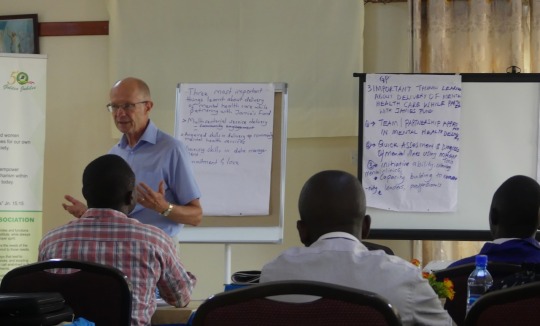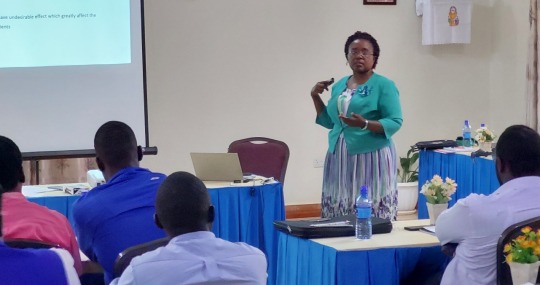#Nursing in the UK for International Students
Explore tagged Tumblr posts
Text
Nursing in the UK for International Students
Welcome to another University admission blog (UK), where I will share valuable insights about studying nursing in the UK for international students. If you are considering a career in nursing and have your sights set on the UK, you’re in the right place. This comprehensive guide will provide information on eligibility requirements, admission processes, scholarships, job prospects, the cost of…

View On WordPress
#留学英国#英国大学住宿#Nursing Admission process in UK#Nursing courses#Nursing in the UK for International Students#Nursing Scholarships for Interantional Students#Study nursing#在英国学习护理#为在英国的国际学生提供奖学金
0 notes
Text

0 notes
Text
Nursing Courses In Australia At Edinway
If you're looking for top-notch nursing courses in Canada or nursing courses in Australia rudra castings has got you covered.Our comprehensive programs provide students with the knowledge and skills needed to excel in this rewarding field.Whether you're a recent high school graduate or a professional seeking to advance your career we have programs tailored to meet your needs.Our experienced faculty members are passionate about teaching and are dedicated to helping students succeed.With state-of-the-art facilities and innovative teaching methods rudra castings is the perfect place to begin your nursing journey.Don't wait enroll in one of our nursing courses today and take the first step towards a fulfilling career.
#nursing course in australia#nursing course in canada#bsc nursing in canada#nursing course in new zealand#diploma of nursing adelaide#nursing colleges in adelaide#bsc nursing in adelaide#universities in sydney for nursing#2 year nursing degree uk#study nursing in australia#nursing course in usa#study nursing in uk#msc nursing in canada#diploma in nursing in canada#bachelor of nursing in australia#nursing course in uk#bsc nursing in uk#bsc nursing in australia#msc nursing in uk#cheapest nursing courses in australia for international students
0 notes
Text
Popular Courses Currently in Demand for International Students
@unilifeabroadcareersolutions

Popular courses currently in demand for international students After finding the perfect course, any international student must make another crucial decision when choosing which course to study abroad in. Global industries are currently changing fast, and it can create career opportunities for international students depending upon the fields they choose and the scope for Permanent Residency (PR). So here is a list of some of the top in-demand courses for international students looking to study abroad in 2024 and beyond. 1. Data Science and Artificial Intelligence
With the emergence of big data and AI-driven technologies, Data Science and AI have emerged as two of the most in-demand courses worldwide.
Why Choose It?
High-paying job opportunities. Demand in industries like IT, healthcare, finance, and retail. Courses available in countries like USA, Canada, Germany, and UK. Career Prospects: Data Scientist, AI Engineer, Machine Learning Expert, Data Analyst. 2. Engineering and Technology
Engineering is at the top preference of the international students due to a wide range of area and scope. Some of the most common specializations offered are Mechanical, Civil, Electrical, and Software Engineering.
Why to choose? All over the world, engineers are required for every industry, such as construction, automobile, and technological. Many colleges provide industrial training along with co-op programs. Top Destinations: Germany, Canada, Australia, and USA. Career Opportunities: Software Engineer, Project Manager, Structural Engineer, Robotics Specialized.
3. Business Administration and Management (MBA) A Master of Business Administration (MBA) is ideal for students who want to work in a leadership position or become an entrepreneur. There is a growing trend towards specialized MBAs in Finance, Marketing, Human Resources, and Operations. Why Choose It? International recognition and high-paying jobs. Networking opportunities and exposure to real-world business. Popular Places: USA, UK, Canada, and Australia. Career Paths: Business Consultant, Marketing Manager, Operations Director, Financial Analyst. 4. Healthcare and Nursing The health sector is on a roll due to the growing need for qualified professionals. Nursing, Public Health, Physiotherapy, and Pharmacy courses are highly rewarded. Why Study It? High employability and PR opportunities in countries like Canada, Australia, and UK. Good chance to make a good difference in people's life. Career Options: Registered Nurse, Public Health Specialist, Pharmacist, Physiotherapist. 5. Information Technology and Cyber security The increased dependency on technology has given a huge demand for IT and Cyber security professionals. Courses like Cloud Computing, Cyber security, and Software Development are in high demand. • Why Choose It? Tremendous job opportunities in tech-driven economies like the USA, Canada, and Germany. Increased demand for cyber security experts to combat digital threats. Career Options: Cyber security Analyst, IT Consultant, Software Developer, Cloud Architect.
6. Hospitality and Tourism Management the tourism industry is on a boom after the pandemic, and so are the demands for professionals in Hospitality and Tourism Management. Why Choose It? Global opportunities for working in luxury hotels, airlines, and tourism companies. Strong industry links and placement during courses. • Popular Locations: Switzerland, Australia, France. • Career Opportunities: Hotel Manager, Tourism Consultant, Event Planner, Airline Executive. 7. Environmental Science and Sustainability As there is a growing interest in sustainability across the globe, courses in Environmental Science, Renewable Energy, and Climate Change are on demand • Why study it? Large-scale efforts at creating the sustainable world present a massive employment scope. • Job opportunities with governments, NGOs, and private sectors Career Prospects: Environmental Consultant, Sustainability Officer, Renewable Energy Specialist. 8. Finance and Accounting Courses on finances and accounting are always in high demand all over the world. FinTech, Financial Technology, and all the related courses are in trends these days. Why Choose It? • High demand for finance people in the world. PR opportunities in Canada and Australia • Career Options: Accountant, Financial Analyst, Investment Banker, FinTech Specialist. 9. Media and Communications The dawn of digital media, content creation, and advertising has made Media and Communications one of the most exciting and rewarding fields. Why Choose It? Growing job demand in digital marketing, PR, and content strategy. Opportunity for creativity and innovation. Career Options: Digital Marketer, Media Specialist, Content Creator, Public Relations Officer. 10. Logistics and Supply Chain Management Supply Chain Management has become a necessary professional skill for international businesses considering the booming of globalization and e-commerce
Why Choose It? Logistics, transportation and e-commerce sectors are demanded. Strong employment opportunities in Canada, Germany and USA. Career Options: Supply chain analyst, logistics manager and procurement specialist. Conclusion The right course according to global trends and industry demand is the key to a successful future. Whether it's technology, healthcare, or business, the top courses in demand are here, offering excellent career opportunities and pathways for PR. Explore programs that align with your interests and goals, and take the first step toward achieving your dream career abroad.
#unilife abroad career solution#unilifeabroadcareersolution#abroad study#free education#paid education#without ielts#overseas education#free education in italy#popularcoursesinabroad
2 notes
·
View notes
Text

Action is needed to show nurses of colour that their contribution is valued and their lives matter, as opposed to words, nursing leaders have warned on the third annual Windrush Day.
On this day in 1948, the first group of people arrived in Essex from the Caribbean on the Empire Windrush cruise ship, pictured above, answering the UK’s call for public sector workers following the Second World War.
“There is still so much to do to level the playing field for people of colour in the UK" Trevor Sterling
Many of these passengers and the other members of the Windrush Generation – along with their descendants – were or would go on to become nurses, helping to create the National Health Service.
The government announced in 2018 that 22 July would become an annual holiday to celebrate the British-Caribbean community and to thank those who helped to rebuild Britain after the war.
The designation came in the wake of the Windrush Scandal in which stories of Commonwealth citizens being wrongfully detained, deported and denied their rights came to light.
Windrush Day this year is particularly poignant as it coincides with a time of national and international reflection on the racial inequalities in our society brought to stark attention by Covid-19 and the Black Lives Matters movement.
More on this topic:
Workplace racism linked to BAME nurses’ higher virus risk
Action on BAME nurse risks coming, minister tells Nursing Times
Nurses from Asian backgrounds at highest Covid-19 risk, finds PHE review
‘Covid-19 and Black Lives Matter have placed racism in the spotlight’
High death rates among Filipino nurses in UK now on global radar
BAME groups at ‘higher risk’ of getting Covid-19 with deprivation among factors
Exclusive: BME nurses ‘feel targeted’ to work on Covid-19 wards
NHS leaders set out new measures to protect BME staff in pandemic
Professor Greta Westwood, chief executive of the Florence Nightingale Foundation, said more needed to be done to “redress the current imbalance” in nursing in terms of race.
While 20% of the overall NHS nursing and midwifery workforce in England is from a black, Asian or ethnic minority (BAME) background, the percentage reduces to 4% for director-level nursing posts.
“It saddens me today to see that our BAME staff, whose own ancestors helped to build the NHS, still feel that they have to break through glass ceilings to succeed,” said Professor Westwood.

Greta Westwood
The foundation launched the Windrush Leadership Programme to help BAME nurses at bands 5 to 6 reach senior leadership positions and now also runs Windrush Leadership Scholarships.
Some of the BAME nurses and midwives who applied to the programme had been in their band 5 roles for more than 20 years.
“Since its foundation, the Windrush Leadership Programme has helped BAME staff find their voice and rightfully claim their place as senior leaders in the NHS,” added Professor Westwood.
“I urge my fellow NHS and other healthcare leaders to redress the current imbalance. We as the foundation will continue to foster this talent, but it is our collective responsibility to work together. Action not words create change.”
One Windrush scholar, Deborah Hylton, said when she joined the programme, she was working as a band 6 health visitor and was struggling with “self-doubt” after being continuously turned down for band 7 roles.
Inspired by her sister and sister-in-law who both came to the UK from the Caribbean when she was 13 and trained as nurses, Ms Hylton joined the nursing profession as a mature student with two young children to “give back to my community”.
She said the ��confidence and skills” she gained through the course helped her to secure her current role as a lecturer in children’s nursing at London South Bank University.
“I am now in a position where I can encourage student nurses from all ethnic groups that nothing is impossible. I am able to stand in front of them as their lecturer and role model and make them aware of another career direction that nursing can offer,” said Ms Hylton.
Meanwhile, staff from four London hospitals will tonight mark Windrush Day by gathering outside their buildings at 5pm and taking a knee to show solidarity with the Black Lives Matter movement.
The protest will be observed by workers at St Thomas Hospital, Kings College Hospital, South London and Maudsley Hospitals, and Lewisham University Hospital.
The action is being organised by Unite the union at Guy's and St Thomas' NHS Foundation Trust, and Royal College of Nursing Inner South East London.
Mark Boothroyd, Unite branch secretary for Guy's and St Thomas', said: “The NHS has the same problems of systemic racism as every other part of society.
“With over 50% of nursing staff in London being from BME backgrounds and directly affected by this, its important staff can show their support for Black Lives Matter, and push their own employers to make changes to tackle the ongoing issue of racism in the NHS.”
The RCN is also using Windrush Day to urge the Home Office to grant indefinite leave to remain to all international health and care workers who have worked in the UK during the pandemic.
“The NHS has the same problems of systemic racism as every other part of society" Mark Boothroyd
Dame Donna Kinnair, RCN chief executive and general secretary, said: “The best way to honour the legacy of Windrush Day is to ensure no nurse, or health and care worker, who trained overseas, and helped in this pandemic, feels alien in this country.
“Granting automatic, indefinite leave to remain to international health and care workers who helped tackle this virus should be instinctive.
“The services and support that they provide, though brought to the fore through this pandemic, have always been essential. They are, and always will be, key workers.”
More than one in 10 of the total registered nursing workforce in the UK come from overseas, according to the Nursing and Midwifery Council. As of September 2019, 77,065 registered nurses came from outside the European Economic Area.
However, international nursing staff must wait five years before they can apply for indefinite leave to remain and are required to take a test to prove their Britishness before they are granted it.

Donna Kinnair
Another organisation demanding action over words is the Mary Seacole Trust which exists to educate the public about the life of the British-Jamaican nursing pioneer who cared for soldiers during the Crimean War, working against both racism and sexism.
The trust oversaw the creation of a Mary Seacole statue in 2016 in the grounds of St Thomas' Hospital, becoming the first statue in the UK in honour of a named black woman.
To mark Windrush Day, the organisation is calling for a national “black plaque scheme” to educate the public on UK black history.
It has written to the prime minister and London mayor to request that plaques are put up next to all British statues to explain the historical context, with the wording decided in collaboration with members of the black community.
Trevor Sterling, chair of the Mary Seacole Trust, said: “Windrush Day has a huge significance for me, my family and countless other black people in the UK.

Trevor Sterling
“Since the Empire Windrush docked at Tilbury in 1948, we have been contributing to our communities in Britain, and yet like Mary Seacole, our contributions are not fully recognised.
“There is still so much to do to level the playing field for people of colour in the UK, as seen most recently in the disproportionate number of BAME coronavirus deaths.
“Education about black British history must be central to all policy changes. If we are to truly address racism in the UK, we must first educate British citizens."
#empire windrush#windrush generation#nurses of the windrush#english immigration#Windrush Day: Nurses demand action on racism and inequality#racial inequality in england#uk racism#white skin immigration policies#BAME
8 notes
·
View notes
Text
Mo had a dream
20th September 2023
The youngest student at the workshop; 2 months old. Son of Brenda, Community MH nurse, he is just 2 months old. He’s called Zion. And very advanced, of course.

At breakfast today I decided to have avocado. Because I could, because it’s good for me, and because we normally eat quite a bit of it at home.
Our menu here tends to be based on common Ugandan everyday foods, hence yesterday’s liver and cooking banana and today’s avocado.
Ewan began the day’s programme with a snowball exercise. 2-3 people discuss first, then they join another group to become 6 and so on. Each time the group has to decide on its ‘top 3’ – in this case, their top three things learnt as a result of the partnership with Jamie’s Fund. Great to read their results. I was not surprised, but I was moved, to hear mention of loving our patients, and other similar sentiments

Long ago in Malawi, I was surprised and upset to find that the PrivateNotForProfit hospitals, which were mostly faith based, wouldn’t care for any patients with mental illness. While in government service we were developing community mental health care and reducing the population of the mental hospital, the mission hospitals were saying “We don’t do this.”
We asked a question of the Christian Medical Fellowship in UK as to why should this be? That led to a consultation: “Should faith based health institutions provide mental health services?”
An international conference followed in 1998: Developing Mental Health: a Challenge to the Churches. We brought participants from five continents - mental health workers, their managers and their bishops, and had a wonderful week in a conference centre in England.
By then I had a dream: that faith-based hospitals, especially in low-income countries, would develop community mental health services, and offer love and commitment to this group of people who are so often stigmatised, rejected and outcast.
Working in Jamie’s Fund in Uganda, my dream has come true. Our young colleagues here have a shining vision to make things better in mental health, and they are transforming lives. They also love to learn and we are having such a good week with them.

Second on today’s agenda I presented Trauma Matters, prepared by our good friend Helen, a Liverpool psychiatrist. We were all looking forward to her first visit to Uganda – and so was she, but late in the day illness stopped that happening. Interesting presenting other people’s powerpoint! But I already knew that she and I had were of the same tribe, had concerns and values in common, and that it was a privilege to present her work.
After lunch our colleague Sudaat told us about a new syndrome “Shake Shake”. Every so often these slightly odd presentations crop up, often in boarding schools, looking like some weird neurological disease. As far as I know, they never are, but are usually due to underlying stress and the girls ‘catch’ it from each other. You won’t be surprised to hear that in ShakeShake the girls’ legs shake.

Some of our colleagues had asked for screening tools to give them a straightforward and speedy way to assess those patients in medical clinics who come with physical symptoms but appear to have nothing wrong with them. So we talked about screening principles and got them doing translations of one such tool into local languages. Much hilarity ensued. Keeping control was like herding cats.
We took a group photo with the banner of the the Diversity Foundation behind the group. Diversity Travel have been very generous in their support to Jamie’s Fund and have paid about half the cost of this work shop for which we are very grateful..

Ewan enjoys data. Don’t drown in data, turn it into information! Kuule from Bwindi and Lamet from Mukono, both very able and visionary mental health clinicians, joined Ewan to show how it could be done. Kuule and Ewan have recently spent a considerable time preparing a research paper on this very subject, which shows how the number of patients attending mental health clinics around Bwindi has increased as more clinics have been opened as a result of training of clnical staff in basic mental health care, sponsored by JF. The only officially required figures are for the clinic attendances rather than how an individual attends. Just looking at the number of attendances doesn't tell you about the size of pool of patients or if individuals are attending regularly for follow up. You need this to be able to manage your service effectively.
Supper as usual and early bed.
6 notes
·
View notes
Text
Best OET Training in Idukki
What is OET ?

OET (Occupational English Test) is an exam for healthcare professionals who seeking a job or practice in an English-speaking environment in order to test their English proficiency. This exam provide a reliable assessment of 4 language skills- reading, writing, speaking, and listening. Reading test is 60 minutes and it consists of 42 questions. Listening test also has 42 questions which is approximately 50 minutes. Speaking test has 20 minutes and writing is 45 minutes.
OET is trusted by hospitals and universities in UK, Ireland, UAE, New Zealand and Singapore as a proof of their English proficiency. OET is available in 42 countries at more than 140 venues. The OET is available in 12 different versions for various healthcare professions, including nurses, doctors, dentists, pharmacists, optometrists, podiatrists, occupational therapists, veterinarians, speech pathologists, dieticians, physiotherapists, and radiographers. Both have the identical Reading and Listening parts.
OET tests for international health practitioners in the following 12 professions:
1. Dentistry
2. Dietetics
3. Podiatry
4. Occupational Therapy
5. Nursing Radiography
6. Medicine
7. Radiography
8. Optometry
9. Speech Pathology
10. Pharmacy
11. Physiotherapy
12. Veterinary Science
Transorze Solutions is a well-known training institute that provides courses and training programmes for professionals who want to improve their English language skills in order to flourish in their chosen field. The OET is a common English language competency test among healthcare workers. It is internationally recognized. The OET Training Institute provides seminars, workshops, and practice examinations to help students attain their targeted OET results. We provides a wide selection of courses and training programmes to accommodate various skill levels and learning styles. The institute provides one-on-one tutoring, classroom instruction, online courses, and workshops. The course is intended to assist students enhance their listening, reading, writing, speaking, and overall communication abilities.
#medicalcareers#healthcare jobs#medicaljobs#education#transorzesolutions#oettraining#oet coaching#oetexam
3 notes
·
View notes
Text
Holidays 5.8
Holidays
Ace Day of Visibility Day
Adam Lambert Day (San Diego)
Brian May Day (UK)
Children’s Day (Maldives)
A Day Without Child Care
A Day Without Socks
Emancipation Day (Columbus, Mississippi)
Fête de I'iris (Brussels, Belgium)
Free Trade Day
Furry Dance (a.k.a. The Flora; Helston, Cornwall, UK)
Infant Mortality Awareness Day
International Blue Iguana Day
International Thalassemia Day
International Viking Day
Iris Day
Jamestown Day
Let It Be Day
Liberation Day (Czech Republic, Norway, Slovakia)
Miguel Hidalgo Day (Mexico)
National Amyloidosis Day (Australia)
National Archery Day
National Catahoula Day
National Coral Reef Day (Indonesia)
National Dakota Day
National Maria Day
National Meeting Planners Appreciation Day
National Nova Day
National Outdoor Intercourse Day
National Report Government Contractor Fraud Day
National Student Nurses Day
National Women’s Checkup Day
No Socks Day
Parents’ Day (Korea)
Provider Appreciation Day
Reward Yourself Day
Time of Remembrance and Reconciliation for Those Who Lost Their Lives During the Second World War Day (UN)
Truman Day (Missouri)
Veterans Day (Norway)
Victory in Europe Day (a.k.a. V-E Day)
Westminster Dog Show Anniversary Day
World Donkey Day
World Ovarian Cancer Day
World Red Cross & Red Crescent Day
World Smallpox Eradication Day
Food & Drink Celebrations
Coca-Cola Day (a.k.a. Have a Coke Day)
Empanada Day
Give Someone a Cupcake Day
National Coconut Cream Pie Day
National Have a Coke Day
2nd Monday in May
American Craft Beer Week begins [2nd Monday; thru 16th]
Child Welfare Professionals Recognition Day (Florida) [2nd Monday]
World Melanoma Day [2nd Monday]
Feast Days
Amato Ronconi (Christian; Saint)
Apparition of Saint Michael (Christian; Saint)
Arsenius the Great (Christian; Saint)
Back Scratching Day (Pastafarian)
Buddha Day (Church of the SubGenius; Saint)
Camillus (Positivist; Saint)
Catherine of St. Augustine (Christian; Saint)
Chivington Day (Church of the SubGenius; Saint)
The Crumb (Muppetism)
Delousing Day (Church of the SubGenius)
Desideratus (Christian; Saint)
The Festival of Mens (Ancient Roman Goddess of Mind and Consciousness)
Fulla’s Blot (Pagan)
The Furry Dance (a.k.a. The Flora; Cornwall, UK)
Gybrian of Ireland (Christian; Saint)
Ida of Nivelles (Christian; Saint)
Julian of Norwich (Anglican, Lutheran)
Magdalene of Canossa (Christian; Saint)
Mates Day (Pastafarian)
Odrian of Waterford (Christian; Saint)
Our Lady of Luján (Christian; Saint)
Peter of Tarentaise (Christian; Saint)
Teresa Demjanovich (Ruthenian Catholic Church)
Wiro of Ireland (Christian; Saint)
White Lotus Day (Theosophy)
Lucky & Unlucky Days
Sakimake (先負 Japan) [Bad luck in the morning, good luck in the afternoon.]
Unglückstage (Unlucky Day; Pennsylvania Dutch) [17 of 30]
Premieres
About a Boy (Film; 2002)
Buccaneer Bunny (WB LT Cartoon; 1948)
Captains and the Kings, by Taylor Caldwell (Novel; 1972)
Deep Impact (Film; 1998)
Dr. Jerkyl’s Hide (WB LT Cartoon; 1954)
Dr. No (US Film; 1963) [James Bond #1]
Down to Earth or The Bullwinkle Bounce (Rocky & Bullwinkle Cartoon, S1, Ep. 47; 1960)
Dracula (Film; 1958)
Endless Love, recorded by Lionel Richie and Diana Ross (Song; 1981)
Fall Story or Adrift in the Lift (Rocky & Bullwinkle Cartoon, S1, Ep. 48; 1960)
A Few Minutes with Andy Rooney (Essay Collection; 1982)
Frolicking Fish (Disney Cartoon; 1930)
Grace and Frankie (TV Series; 2015)
Hans Christian Anderson’s Fairy Tales (Book; 1835)
Hot Pursuit (Film; 2015)
The Lady of the Lake, by Sir Walter Scott (Poem; 1810)
Let It Be, by The Beatles (Album; 1970)
The Mysteries of Udolpho, by Ann Radcliffe (Novel; 1794)
The School for Scandal, by Richard Brinkley Sheridan (Play; 1777)
Solar Opposites (Animated TV Series; 2020)
The Stand (TV Mini-Series; 1994)
Star Trek (Film; 2009)
Three Imaginary Boys (a.k.a. Boys Don’t Cry), by The Cure (Album; 1979)
Wanna Be Startin’ Somethin’, by Michael Jackson (Song; 1983)
Today’s Name Days
Ida, Klara, Ulla, Ulrike (Austria)
Arsen, Ida, Marija (Croatia)
Státní svátek (Czech Republic)
Stanislaus (Denmark)
Timmo, Timmu, Timo (Estonia)
Heino (Finland)
Désiré (France)
Ida, Klara, Ulla, Ulrike (Germany)
Arsenios, Melios, Theologos (Greece)
Mihály (Hungary)
Desiderato, Egli, Geronzio, Maria, Michele, Rosario, Vittore (Italy)
Aiga, Ceronis, Inita, Staņislavs, Stefanija (Latvia)
Audrius, Džiugas, Mykolas (Lithuania)
Åge, Åke (Norway)
Dezyderia, Ilza, Marek, Michał, Piotr, Stanisław (Poland)
Ioan (România)
Ingrida (Slovakia)
Eladio, Heladio, Luján, Pedro, Víctor (Spain)
Åke (Sweden)
Acacia, Acacio, Acacius, Ace, Hal, Harold, Harriet, Harris, Harrison, Harry, Hattie (USA)
Today is Also…
Day of Year: Day 128 of 2024; 237 days remaining in the year
ISO: Day 1 of week 19 of 2023
Celtic Tree Calendar: Saille (Willow) [Day 23 of 28]
Chinese: Month 3 (Bing-Chen), Day 19 (Bing-Yin)
Chinese Year of the: Rabbit 4721 (until February 10, 2024)
Hebrew: 17 Iyar 5783
Islamic: 17 Shawwal 1444
J Cal: 7 Bīja; Sevenday [7 of 30]
Julian: 25 April 2023
Moon: 86%: Waning Gibbous
Positivist: 15 Caesar (5th Month) [Junius Brutus]
Runic Half Month: Lagu (Flowing Water) [Day 14 of 15]
Season: Spring (Day 50 of 90)
Zodiac: Taurus (Day 19 of 30)
1 note
·
View note
Text
Healing the Future: A Guide to Medical Courses After 12th for Aspiring Healers
Choosing the right medical courses after 12th grade is a pivotal decision for students aspiring to build a career in the healthcare sector. With a wide range of options available, understanding the possibilities and choosing the ideal path can set you on a journey toward a fulfilling and impactful profession.

Popular Medical Courses After 12th
Medical courses go beyond the traditional MBBS degree, offering a variety of programs tailored to specific interests and skill sets. Here are some popular options:
MBBS (Bachelor of Medicine and Bachelor of Surgery) The most sought-after course, MBBS, is the foundation for becoming a doctor. This program equips students with the knowledge and skills required to practice medicine and conduct surgeries.
BDS (Bachelor of Dental Surgery) For those interested in oral health and dental care, BDS is the perfect course. Graduates can work as dentists or dental surgeons.
B.Sc. Nursing Nursing is a critical part of healthcare, and this course trains students to provide quality patient care, making it a highly respected profession.
BAMS (Bachelor of Ayurvedic Medicine and Surgery) Combining traditional Ayurvedic practices with modern medicine, this course appeals to students inclined towards alternative medicine.
BHMS (Bachelor of Homeopathic Medicine and Surgery) BHMS focuses on homeopathic practices and is ideal for students interested in holistic and natural treatment methods.
Pharmacy Courses Programs like B.Pharm and D.Pharm prepare students to work in the pharmaceutical industry, research, or open their own pharmacies.
Paramedical Courses Specializations such as medical lab technology, radiology, and physiotherapy fall under paramedical courses, which offer critical support roles in healthcare.
Top Study Destinations for Medical Courses
For students who want to pursue their dreams globally, studying abroad offers access to advanced education, diverse learning environments, and cutting-edge medical technology. Some of the top study destination include:
USA: Known for its research-oriented medical programs and renowned universities, the USA is a top choice for aspiring medical professionals.
UK: Home to prestigious institutions like the University of Oxford, the UK offers excellent medical education and hands-on clinical exposure.
Canada: With its strong emphasis on practical training, Canada provides medical programs that prepare students for global healthcare challenges.
Australia: Australian universities are recognized for their innovative medical curricula and opportunities for clinical placements.
Germany: Offering low-cost or tuition-free education in some cases, Germany is an attractive destination for medical studies.
Why Study Abroad for Medical Education?
Study abroad not only provides access to world-class facilities and faculty but also enhances cultural understanding and global exposure. Graduates from international universities often have better job prospects and the ability to practice medicine in multiple countries.
The Role of an Overseas Education Consultant
Navigating the admission process for medical courses abroad can be complex. This is where an overseas education consultant plays a vital role. From selecting the right university to guiding you through visa applications and scholarship opportunities, consultants simplify the journey, ensuring a smooth transition to your desired study destination.
Conclusion
Whether you choose to study in your home country or explore medical courses abroad, the healthcare field offers rewarding career opportunities. With the right guidance and determination, you can make a difference in people's lives while achieving your professional dreams.
Also read:
Mastering Global Opportunities: Understanding English Proficiency Tests for Studying Abroad
Mastering the GMAT: Your Gateway to Global Education Opportunities
Mastering the MCAT: Your Gateway to Top Medical Schools Abroad
Unlocking Global Potential: Exploring Career Opportunities in the UK for International graduates
0 notes
Text
How Does OET Training Help Nurses in Kerala Advance Their Careers?
Nurses in Kerala, like their counterparts worldwide, strive to enhance their professional skills and improve their opportunities in the healthcare industry. One of the most effective ways to achieve this is by acquiring an internationally recognized certification such as the Occupational English Test (OET). This blog will explore how OET training benefits nurses in Kerala, enabling them to advance their careers and broaden their professional horizons.
What is OET?
The Occupational English Test (OET) is an English proficiency test designed specifically for healthcare professionals. It evaluates the language skills of individuals who wish to work in English-speaking environments. The test assesses speaking, listening, reading, and writing skills in the context of healthcare. For nurses aspiring to work in countries like the UK, Australia, or New Zealand, OET is a vital requirement. In Kerala, where a significant number of nurses are seeking overseas employment, OET training becomes essential to help them meet these language proficiency standards.
Importance of OET Training for Nurses in Kerala
Improves Communication Skills in a Healthcare Setting Nurses are on the front lines of patient care, and effective communication is crucial to ensure patients receive the best treatment. OET training focuses on developing the communication skills needed in real healthcare settings. This involves understanding medical terminology, improving listening comprehension for doctor-patient interactions, and mastering the art of writing medical reports. Nurses trained in OET are better equipped to express themselves clearly and confidently, thereby improving patient care.
Boosts Job Prospects Abroad For many nurses in Kerala, working abroad is a dream. Countries like the UK, Australia, and New Zealand offer attractive opportunities for skilled nurses. However, these countries have strict language proficiency requirements that can be met by passing the OET. With OET training, nurses increase their chances of qualifying for these positions. This certification opens the door to employment in international healthcare settings, where nurses can expand their professional skills and gain valuable experience.
Enhances Confidence in the Workplace OET training helps nurses in Kerala build the confidence they need to work in an English-speaking healthcare environment. Many nurses are hesitant to communicate in English, particularly when dealing with complex medical terms and patient inquiries. With proper OET coaching, nurses can practice and refine their English skills, allowing them to feel more comfortable interacting with patients and colleagues.
Accelerates Career Growth As healthcare systems become increasingly globalized, the demand for nurses with strong English language skills continues to grow. Nurses who complete OET training have a competitive edge in the job market, especially in international healthcare settings. They are also more likely to be considered for higher positions, such as nursing supervisors, trainers, or healthcare administrators, due to their advanced communication skills.
Why Choose Let's Update Language Academy for OET Training?
Nurses in Kerala seeking OET training need a reliable and effective learning environment. That's where Let's Update Language Academy comes in. Established with the aim of providing the best possible online learning environment for OET and IELTS candidates, Let's Update Language Academy offers top-tier coaching to help nurses in Kerala advance their careers.
The academy is known for its:
Expert Trainers: Let's Update Language Academy boasts a team of highly qualified trainers who have years of experience in preparing students for OET. They use personalized teaching methods that cater to individual learning styles, ensuring every nurse achieves the highest possible score.
Comprehensive OET Coaching: The academy offers the best OET coaching in Kerala, with a focus on all four language skills – listening, reading, writing, and speaking. Nurses are provided with practical, scenario-based training to help them handle real-life healthcare communication challenges.
Online Learning Flexibility: Understanding the busy schedules of nurses, Let's Update Language Academy provides online OET coaching, allowing students to learn at their own pace and convenience. This flexibility makes it easier for nurses to balance work and study.
IELTS Coaching: In addition to OET coaching, the academy is also renowned for its exceptional IELTS coaching in Kochi. Many nurses who wish to work abroad also need to take the IELTS exam, and the academy provides guidance for both exams, ensuring that nurses can prepare for all aspects of their overseas career.
Personalized Attention: At Let's Update Language Academy, each student is given personalized attention to address their specific needs. This one-on-one guidance ensures that nurses receive the support they need to succeed in the OET.
Proven Success: The academy is recognized for its excellence, diligence, and track record of helping students achieve high scores. Many of the academy's students have successfully passed the OET and secured employment in prestigious international healthcare settings.
Conclusion
OET training is a game-changer for nurses in Kerala who are looking to enhance their careers. Whether they wish to work in top international healthcare facilities or improve their communication skills for better patient care, OET training is the key to success. Let's Update Language Academy stands out as the best OET training for nurses in Kerala, offering personalized online coaching that equips nurses with the skills they need to excel in their careers. With expert guidance, flexible learning options, and a proven track record of success, Let's Update Language Academy is the ideal choice for nurses aspiring to advance their careers through OET certification.
#OET training for nurses in Kerala#oet high score training in Kerala#best OET online course in Kerala#best OET coaching center in Kochi
0 notes
Text
Best Courses to Study in the UK in 2025
The United Kingdom has long been a top destination for international students, known for its prestigious universities, research excellence, and global career prospects. For those considering studying in the UK in 2025, the country offers a wide range of highly sought-after programs that lead to rewarding careers across various fields. In this guide, we’ll explore the best courses to study in the UK, popular degree choices, and fields that offer strong career opportunities.

Why Study in the UK?
With world-class universities, an emphasis on academic rigor, and a culturally rich environment, the UK offers international students a well-rounded educational experience. Many UK institutions, like the University of Oxford, University of Cambridge, and Imperial College London, are consistently ranked among the top universities globally, making the UK an excellent place to pursue your studies. Whether you're interested in business, technology, medicine, or the arts, UK universities offer courses that are not only academically enriching but also aligned with the skills needed in the job market.
Top Courses to Study in the UK in 2025
Business and Management
The UK is home to some of the best business schools in the world, such as the London School of Economics, University of Cambridge Judge Business School, and Said Business School at Oxford. Business courses are consistently popular due to the UK’s vibrant economy and London’s role as a global financial center. Fields like finance, marketing, and international business are highly sought-after, offering ample internship and networking opportunities with leading companies.
Data Science and Artificial Intelligence (AI)
Data Science and AI have transformed industries worldwide, creating a high demand for professionals in these fields. Universities like Imperial College London and the University of Edinburgh offer top-rated programs in Data Science, AI, and Machine Learning. These courses are ideal for students interested in analytics, robotics, and future technologies, with excellent career prospects in both tech startups and multinational corporations.
Engineering
Engineering remains one of the best courses to study in the UK, with degrees highly valued by employers globally. The UK’s universities offer specializations in Mechanical, Civil, Electrical, and Biomedical Engineering. Institutions such as the University of Manchester, University of Sheffield, and University of Bristol are well-regarded for their engineering programs, often offering hands-on training and collaborative projects with industry leaders.
Health and Medical Sciences
The UK is a leader in medical research and healthcare innovation. Courses in Medicine, Nursing, Public Health, and Biomedical Sciences are particularly popular among international students. Universities like King’s College London and the University of Glasgow offer excellent facilities and training environments, preparing students for careers in healthcare both in the UK and abroad.
Law
The UK’s rich legal history and common law system make it an attractive destination for students interested in studying Law. Universities such as the University of Oxford, University of Cambridge, and University College London (UCL) offer world-renowned law programs. Specializations like International Law, Human Rights Law, and Corporate Law are highly regarded, and UK law graduates have strong global career prospects, especially for those pursuing international legal careers.
Creative Arts and Design
Known for its vibrant arts and creative industries, the UK is an ideal destination for those interested in Design, Film, Fine Arts, and Fashion. The University of the Arts London (UAL) and Royal College of Art are well-regarded globally. With access to dynamic cultural hubs in cities like London, students benefit from internships, networking, and collaborations with renowned creative professionals.
Environmental Science and Sustainability
With global attention on climate change, Environmental Science and Sustainability have become increasingly important. The UK offers top programs in these areas, especially at universities like the University of East Anglia and the University of Exeter. Courses in Environmental Science, Ecology, and Sustainability Studies equip students with the skills needed to tackle environmental issues and contribute to sustainable development.
Emerging Fields: Cybersecurity, Biotechnology, and Renewable Energy
As the job market continues to evolve, fields like Cybersecurity, Biotechnology, and Renewable Energy are becoming more prominent in the UK. With universities offering specialized programs and extensive research facilities, these emerging fields are ideal for students looking to enter high-growth industries with strong job prospects.
Application Process and Student Visas
To apply to UK universities, start by researching programs that align with your academic background and career goals. Most universities require an undergraduate degree, English language proficiency (IELTS or TOEFL), and supporting documents like personal statements and references. Once accepted, you can apply for a UK student visa (Tier 4) to begin your studies.
Cost of Studying and Scholarships
The cost of studying in the UK varies by program and institution, with tuition fees for international students typically ranging from £10,000 to £38,000 per year. The UK also offers various scholarships, such as the Chevening Scholarships, Commonwealth Scholarships, and university-specific awards, which can help offset tuition costs. Financial aid options are available for both undergraduate and postgraduate students, making it easier to afford a quality UK education.
Apply Now Through TC Global - The Chopras
Ready to take the next step in your educational journey? You can apply to your chosen UK program with ease through TC Global - The Chopras. Known for its expertise in global education, TC Global offers comprehensive guidance on university selection, application support, and visa assistance, helping you make well-informed decisions at every stage. Connect with TC Global today to start planning your studies in the UK for 2025.
1 note
·
View note
Text
Career Opportunities in UK: Unlocking Global Potential
The UK remains one of the top destinations for international students, offering a dynamic job market across multiple sectors. With its rich culture, world-class education system, and global business connections, the UK provides students with unparalleled career opportunities both during and after their studies.

In-Demand Careers in the UK
Technology and Digital: With the UK’s fast-growing tech industry, there is a high demand for software engineers, data scientists, and IT support professionals. London is a tech hub, offering plenty of opportunities for digital-savvy graduates.
Healthcare: Like many countries, the UK has a constant need for healthcare professionals, including doctors, nurses, and medical researchers, particularly in the NHS.
Creative Industries: The UK is home to thriving media, design, and entertainment sectors, providing career opportunities in marketing, journalism, advertising, film, and more.
Finance and Business: London’s financial district is one of the world’s largest, offering extensive opportunities in banking, insurance, and financial analysis.
Engineering and Manufacturing: The UK’s engineering sector continues to grow, with a particular demand for civil, mechanical, and electrical engineers to support infrastructure and innovation.
Boost Your Career Prospects in the UK
Building local connections, securing internships, and pursuing postgraduate degrees are great ways to improve your chances of employment in the UK. Additionally, the post-study work visa allows international graduates to stay and gain work experience for up to two years.
An overseas education consultant can assist in navigating the UK's job market, identifying career opportunities, and helping with visa processes.
0 notes
Text
Best Courses to Study in the UK for High-Paying Jobs

The UK is home to some of the world's most prestigious universities and offers a wide range of courses that can lead to high-paying, fulfilling careers. Whether you're looking to study business, engineering, technology, or healthcare, the UK provides opportunities for international students to gain valuable qualifications and work in lucrative fields. Here are some of the best courses to study in the UK for those aspiring to secure a high-paying job.
1. Business and Management
Business and management degrees have always been in demand, and the UK is home to some of the top business schools in the world. Courses such as an MBA (Master of Business Administration), Finance, and Marketing prepare students for leadership roles in various industries. Business graduates can expect to work in high-paying roles such as CEOs, CFOs, or marketing directors. Graduates of business courses often find job opportunities with global companies or start their own successful ventures.
Top UK universities offering business-related programs include London Business School, University of Oxford, and University of Cambridge.
2. Computer Science and IT
The tech industry is booming, and a degree in Computer Science or Information Technology can open doors to some of the highest-paying roles in the UK. Courses like Data Science, Artificial Intelligence, and Cybersecurity provide students with the skills necessary to thrive in this fast-evolving field. Graduates can pursue roles such as software developers, IT managers, or data scientists, all of which offer excellent salaries.
With the demand for skilled professionals growing, universities such as Imperial College London, University College London (UCL), and the University of Edinburgh are excellent choices for studying these fields.
3. Engineering
Engineering courses are another great option for those looking to land high-paying jobs. The UK offers a variety of engineering degrees, including civil, mechanical, electrical, and aerospace engineering. Engineers are consistently in high demand across multiple industries, including construction, technology, and manufacturing.
Top engineering schools in the UK include the University of Cambridge, Imperial College London, and the University of Oxford. Engineering graduates often secure positions with top companies like Rolls-Royce, BAE Systems, and Shell, with salaries ranging from £30,000 to over £70,000 per year.
4. Healthcare and Medicine
The healthcare sector in the UK offers many opportunities for well-paying careers. Degrees in Medicine, Dentistry, Pharmacy, and Nursing are not only rewarding in terms of personal fulfillment but also financially. Healthcare professionals in the UK are highly sought after, and roles such as doctors, surgeons, pharmacists, and specialized nurses often offer salaries above £40,000 per year.
The University of Oxford, University College London (UCL), and the University of Glasgow are known for their exceptional medical and healthcare courses.
5. Law
Law remains one of the most prestigious and high-paying career paths in the UK. Whether you're interested in corporate law, criminal law, or human rights, the opportunities for a successful career are vast. After completing a law degree, graduates can pursue roles such as solicitors, barristers, or legal advisors, with salaries ranging from £25,000 to well over £100,000 for top lawyers.
Top law schools in the UK include the University of Cambridge, University of Oxford, and London School of Economics and Political Science (LSE). These universities provide excellent training for aspiring lawyers who wish to work in top law firms or multinational corporations.
6. Finance and Accounting
A degree in Finance or Accounting is another great way to secure a high-paying job in the UK. Graduates can pursue careers as financial analysts, accountants, auditors, or investment bankers. These roles are known for offering competitive salaries, particularly in cities like London, which is a global financial hub.
Some of the best universities in the UK for finance-related courses include the University of Warwick, University of St Andrews, and the University of Manchester.
7. Architecture
Architecture is a highly creative yet rewarding field. A degree in Architecture from a top UK university can lead to a fulfilling career with high earning potential. Architects often work on large-scale projects such as commercial buildings, bridges, and residential complexes. Salaries in architecture can vary, but experienced professionals can earn over £50,000 annually.
Top UK universities for Architecture include the University of Cambridge, University College London (UCL), and the University of Bath.
8. Creative Arts and Design
While the creative industries may not always be associated with high-paying jobs, a degree in fields such as Graphic Design, Fashion Design, Animation, or Film Production can lead to well-paid opportunities in the media, entertainment, and design sectors. Graduates of creative courses often work as graphic designers, fashion designers, animators, or film producers.
Some of the leading universities for creative arts include the University of the Arts London, University of Edinburgh, and the University of Glasgow.
In conclusion, the UK offers a wide range of courses that can lead to high-paying and rewarding careers. From business to healthcare, technology, law, and engineering, students can find programs that align with their career goals. To explore more top courses in the UK, visit this link. With a degree from a top UK university, students are well-positioned to succeed in their chosen fields and earn competitive salaries.
0 notes
Text
Astana Medical University Kazakhstan
In 1964, Astana Medical University Kazakhstan was founded as a small medical school. It has developed over the years into a complete institution with a wide range of medical programs and chances for cutting-edge research. By generating skilled medical workers, the university has significantly influenced Kazakhstan's healthcare environment.
AMU is now known for encouraging academic quality, creativity, and international cooperation—all of which have helped the university gain respect across the globe.
One of the top universities in Kazakhstan for medical education is Astana Medical University (AMU), which is situated in Astana, the capital city. Renowned for its cutting-edge facilities, contemporary infrastructure, and internationally acclaimed academic programs, AMU is a top choice for prospective medical professionals from all over the world, not only in Kazakhstan.
Courses and Academic Programs Numerous undergraduate, graduate, and doctoral programs covering a range of medical and healthcare specialties are available at Astana Medical University.
Undergraduate Courses:
General Medicine (equal to MBBS or MD) Public health, nursing, dentistry, and pharmacy
Postgraduate Programs:
Residency programs throughout a range of medical specialties, including oncology, pediatrics, neurology, and cardiology.
Programs for Doctorates:
PhD programs in disciplines such as pharmacology, public health, and biomedicine. AMU's curriculum blends academic knowledge with hands-on training, and it is designed to match worldwide standards. Evidence-based medicine, critical thinking, and practical clinical experience are prioritized.
Contemporary Facilities and Infrastructure
Modern amenities are available at Astana Medical University to guarantee a thorough educational experience:
State-of-the-Art Labs: Cutting-edge labs for biochemistry, pathology, microbiology, and anatomy.
Simulation Centers: These facilities assist students gain clinical skills in a secure setting by simulating actual medical situations.
Affiliated Hospitals: AMU maintains affiliations with some of Astana's top hospitals, where students receive hands-on instruction and clinical experience under the guidance of professionals.
Library and Research Facilities: The institution is home to research centers focused on medical innovation as well as a sizable library with print and digital resources.
Hostels: For both domestic and foreign students, on-campus housing offers a cozy and safe living space.
International Accreditation and Recognition
The following significant international organizations recognize Astana Medical University:
The National Medical Commission (NMC) of India, the World Health Organization (WHO), the Foundation for Advancement of International Medical Education and Research (FAIMER), and the Educational Commission for Foreign Medical Graduates (ECFMG) Because of this certification, AMU graduates are guaranteed the opportunity to continue their education or practice medicine in a number of nations, including the US, UK, and India.
Astana Medical University admissions
Requirements for International Students' Eligibility:
High school graduation with a major in biology, chemistry, and physics. a minimal percentage, which varies by nation but is typically between 50 and 60 percent for PCB issues. English language proficiency or a readiness to enroll in a foundational course.
How to Apply: Visit the university's official website and complete the online application. Send in the necessary paperwork, such as a personal statement, copies of your passport, and transcripts. The application cost must be paid. Await the university's letter of admission.
Astana Medical University stands as a beacon of medical education in Central Asia. With its modern facilities, dedicated faculty, and international collaborations, the university provides a nurturing environment for aspiring medical professionals. For those seeking a blend of affordability, quality, and global recognition, AMU is undoubtedly a top contender.
Whether you are a local student or an international aspirant, Astana Medical University offers the tools and resources to transform your dreams of a medical career into reality.

#Astana Medical University Kazakhstan#india#indian#education#student life#studying#university#russia#study abroad#university student#abroad education
0 notes
Text
Discover the Best Country to Study Abroad for Indian Students with First Edwise

Visit our website:- https://firstedwise.com/
Studying abroad is a life-changing experience that opens up a world of opportunities, both academically and personally. For Indian students, choosing the best country to study abroad can be overwhelming with so many options available. At First Edwise, we specialize in guiding students toward their dream destinations, ensuring they make informed decisions for a successful future.
Why Study Abroad?
Studying abroad offers more than just an education. It’s an opportunity to gain global exposure, experience diverse cultures, and build a network of international connections. Whether you’re aiming to enhance your career prospects or explore new horizons, studying in a foreign country is a transformative journey that can shape your life.
Factors to Consider When Choosing the Best Country to Study Abroad
When selecting a country to pursue your education, it’s crucial to weigh several factors:
Quality of Education: Look for countries known for their world-class universities and programs.
Affordability: Consider tuition fees, living costs, and available scholarships.
Post-Study Opportunities: Evaluate work permit policies and job prospects after graduation.
Cultural Comfort: Choose a country where you feel comfortable adapting to the culture and lifestyle.
Visa Policies: Research student visa requirements and how they align with your long-term goals.
Top Countries for Indian Students to Study Abroad
Here are some of the most popular destinations for Indian students, carefully curated by First Edwise to match academic aspirations and lifestyle preferences:
1. United States
Why Choose the US?: Home to Ivy League schools and globally ranked universities, the US offers unmatched academic flexibility and research opportunities.
Popular Courses: Engineering, Business, Computer Science, and Healthcare.
Highlights:
High employability rates for graduates.
A multicultural environment with a large Indian student community.
Scholarships and assistantship programs to support students.
2. Canada
Why Choose Canada?: Known for its affordability and high-quality education, Canada is a top choice for Indian students.
Popular Courses: Data Science, Management, Environmental Studies, and Animation.
Highlights:
Friendly immigration policies and post-study work permits.
Affordable tuition and living costs compared to other countries.
Safe and welcoming environment with diverse cultural representation.
3. United Kingdom
Why Choose the UK?: With a rich academic heritage, the UK boasts some of the world’s oldest and most prestigious universities.
Popular Courses: Law, Medicine, Arts, and Finance.
Highlights:
Shorter program durations, helping students save on costs.
Access to globally recognized degrees.
Opportunities to work while studying.
4. Australia
Why Choose Australia?: Renowned for its high academic standards and beautiful landscapes, Australia is a dream destination for many students.
Popular Courses: Information Technology, Accounting, Nursing, and Hospitality Management.
Highlights:
Generous post-study work opportunities.
Scholarships for international students.
A relaxed and vibrant lifestyle.
5. Germany
Why Choose Germany?: Known as the “Land of Ideas,” Germany is a hub for innovation and engineering.
Popular Courses: Mechanical Engineering, Automobile Engineering, and Business Administration.
Highlights:
Tuition-free or low-cost education in public universities.
A strong focus on research and development.
Excellent job prospects for STEM graduates.
6. New Zealand
Why Choose New Zealand?: With its excellent education system and stunning natural beauty, New Zealand offers a unique study experience.
Popular Courses: Agriculture, Engineering, and Tourism.
Highlights:
High-quality education at affordable costs.
Friendly and supportive environment for international students.
Opportunities for permanent residency after graduation.
How First Edwise Can Help You Choose the Best Country
At First Edwise, we’re committed to making your study abroad journey seamless and rewarding. Here’s how we assist you:
Personalized Counseling
We understand your academic goals, career aspirations, and financial constraints to recommend the best-fit countries and universities.
Application Support
From choosing the right course to submitting flawless applications, our experts guide you through every step.
Scholarship Assistance
We help you explore and apply for scholarships to ease your financial burden.
Visa Guidance
Navigating visa requirements can be challenging, but with First Edwise, you’re in safe hands.
Pre-Departure Services
From travel arrangements to cultural training, we ensure you’re well-prepared for your journey.
Why First Edwise Stands Out
Experience and Expertise: With years of experience, we’ve successfully placed thousands of students in top universities worldwide.
Global Network: Our strong ties with leading institutions ensure you get access to the best opportunities.
Student-Centric Approach: Your success is our priority, and we go the extra mile to make your dreams a reality.
Start Your Study Abroad Journey Today
Choosing the best country to study abroad can be a daunting task, but you don’t have to do it alone. At First Edwise, we’re here to guide you every step of the way. Let us help you find the perfect destination, university, and program that align with your goals. Contact us today and take the first step toward a brighter future!
0 notes
Text
Events 1.25
Holidays
Big Rock Day
Biologist’s Day (Mexico)
Burns Night (a.k.a. Robert Burns Day; Scotland)
Criminon Day (Scientology)
Dinner Party Day
Dydd Santes Dwynwen (Welsh Valentine's Day)
Festival of Constructive Energy
Fluoride Day
Food and Nutrition Day (Indonesia)
G.F. Betico Croes Day (Aruba)
International Day of Action on Yemen
International Day of Women in Multilateralism
IV Nurse Day (a.k.a. Intravenous Nurse Day)
January Revolution and National Police Day (Egypt)
KStews Day
Laurustinus Day (French Republic)
Long Distance Day
Luanda City Day (Angola)
Macintosh Computer Day (a.k.a. Mac Day)
Multicultural Children’s Book Day
National Florida Day
National Heroes’ Day (Cayman Islands)
National Moose Day
National Nutrition Day (Indonesia)
National Opposite Day
National Police Day (Egypt)
National Tourism Day (India)
National Videography Day
National Voters’ Day (India)
Observe the Weather Day
Official Crayon Day
Public Holiday (Saint Vincent and Grenadines)
A Room of One's Own Day
Social Workers’ Day (Talikstan)
Soda Fountain Day
St. Dwynwen’s Day (Welsh Valentine’s Day; Wales)
Tatiana Day (a.k.a. Students Day; Russia, Ukraine)
Thank Your Mentor Day
Virginia Woolf Day
Wedding March Day
Winter-een-mas begins [thru 31st]
Winter Olympics Day
Women’s Health Research Day
Food & Drink Celebrations
Food and Nutrition Day (Indonesia)
National Fish Taco Day
National Irish Coffee Day
Schnitzelbank Bratwurst Day (Jasper, Indiana)
Nature Celebrations
Cerastium Day (Genuine; Korean Birth Flowers)
Independence, Flag & Related Days
Federated States of Antarctica (Declared; 2009) [unrecognized]
Foundation Day (Sao Paulo, Brazil)
Himachal Pradesh Statehood Day (India)
Islamic Emirate of Acre (Declared; 2020) [unrecognized]
Revolution Day 2011 (Egypt)
São Paulo Foundation Day (Brazil; 1554)
Ukraine (Independence Declaration Day, from Bolshevik Russia; 1918)
New Year’s Days
Chinese New Year Holiday, Day 1 (Taiwan)
Mahāyāna New Year (Mahāyāna Buddhism)
Tet Holiday (Vietnam)
4th & Last Saturday in January
Great Fruitcake Toss (Manitou Springs, Colorado) [Last Saturday]
KidFilm Festival begins [Last Saturday]
National Seed Swap Day [Last Saturday]
Salacious Saturday [4th Saturday of Each Month]
Sandwich Saturday [Every Saturday]
Sausage Saturday [4th Saturday of Each Month]
Side Hustle Saturday (UK) [Last Saturday]
Six For Saturday [Every Saturday]
Spaghetti Saturday [Every Saturday]
Splurge Saturday [Last Saturday of Each Month]
Stir-Fry Saturday [Last Saturday of Each Month]
Visit Your Local Quilt Shop Day [4th Saturday]
Winter Brew Fest (Denver, Colorado) [Last Saturday]
Yay Day (Sam & Cat TV Show) [Last Saturday]
Weekly Holidays beginning January 25 (3rd Full Week of January)
Carnival of Limoux (Limoux, France) [thru 4.6]
Cordova Iceworm Days (Cordova, Alaska) [thru 2.1]
National Storytelling Week [thru 2.1]
Festivals Beginning January 25, 2025
Brunswick Rockin' Stewbilee (Brunswick, Georgia)
The Chocolate Expo (Wilmington, Massachusetts) [thru 1.26]
FFA Farm Toy Show (Saline, Michigan)
Food & Agriculture Winter Conference (Asbury Park, New Jersey)
Hoggetowne Medieval Faire (Gainesville, Florida) [thru 1.26]
Indian River Marine Flea Market and Seafood Festival (Vero Beach, Florida) [thru 1.26]
International Hot Air Balloon Festival of Château-d’Oex (Château-d’Oex, Switzerland) [thru 2.2]
Midwest AG Expo (Gordyville, Illinois) [thru 1.26]
New York Craft Brewers Festival (Albany, New York)
New York Travel & Adventure Show (New York, New York) [thru 1.26]
One Love Festival (Tauranga, New Zealand) [thru 1.26]
Playtime (Paris, France) [thru 1.27]
Port St. Lucie Seafood Festival (Port St. Lucie, Florida) [thru 1.26]
Saint Simons Land Trust Oyster Roast (St. Simons Island, Georgia)
SAVOR Food & Wine Festival (Tucson, Arizona)
Social in the City (London, United Kingdom) [thru 1.26]
Winterfest (Amana Colonies, Iowa)
WWA Convention (Las Vegas, Nevada)
Feast Days
Ananias of Damascus (Christian; Saint)
Apollo (Christian; Saint)
Artemas (Christian; Martyr)
Burns Night (Pastafarian)
Cere’s Day (Pagan)
Conversion of Saint Paul (Eastern Orthodox, Oriental Orthodox, Roman Catholic, Anglican and Lutheran churches, which concludes the Week of Prayer for Christian Unity)
Dwynwen (Celtic; Saint) [Welsh Valentine’s Day]
Dydd Santes Dwynwen (Wales)
Feriae Sementivae (Ancient Roman Feast to Spring)
Gather Bathou San (Assam, India)
Great Uncle Fishknife (Muppetism)
Gregory the Theologian (Eastern or Byzantine Catholic Church)
Imoinu Irapta (Manipur, India)
Isaiah (Positivist; Saint)
Juventinus and Maximinus, Martyrs of Antioch (Christian; Martyrs)
Keith Moon Day (Church of the SubGenius; Saint)
Nut’s Day (Ancient Egypt)
Old Disting (Norse)
Poppo of Stavello (Christian; Saint)
Praejectus (a.k.a. Prix; Christian; Saint)
Publius (Christian; Saint)
Sementivae Feria: Seed Blessing (Pagan)
The last day of the Week of Prayer for Christian Unity (Christian ecumenism)
Lunar Calendar Holidays
Chinese: Month 12 (Ding-Chou), Day 26 (Jia-Wu)
Day Pillar: Wood Horse
12-Day Officers/12 Gods: Initiate Day (执 Zhi) [Auspicious]
Holidays: None Today
Secular Saints Days
Pompeo Batoni (Art)
Robert Burns (Literature)
Stephen Chbosky (Literature)
Eusebio (Sports)
Govert Flinck (Art)
Shotaro Ishinomori (Art)
Etta James (Music)
Antonio Carlos Jobim (Music)
Leiji Matsumoto (Art)
W. Somerset Maugham (Literature)
Morgan Russell (Art)
Georgy Shishkin (Art)
Hendrick van Avercamp (Art)
Virginia Woolf (Literature)
Lucky & Unlucky Days
Dismal Day (Unlucky or Evil Day; Medieval Europe; 2 of 24)
Egyptian Day (Unlucky Day; Middle Ages Europe) [2 of 24]
Sensho (先勝 Japan) [Good luck in the morning, bad luck in the afternoon.]
Premieres
Adventure (Atari 2600 Video Game; 1980)
After Many a Summer Dies the Swan, by Aldous Huxley (Novel; 1939)
The Augsburg Confession (Lutheran Religious Book; 1530)
Beware of Barnacle Bill (Fleischer Popeye Cartoon; 1935)
Birds of Prey (Film; 2020)
Black Sails (TV Series; 2014)
Blame!, by Tsutomu Nihei (Manga; 1997)
Bughouse, recorded by Red Norvo (Song; 1935)
Cat’s Meow (MGM Cartoon; 1957)
Circus Time (Toby the Pup Cartoon; 1931)
Club Sandwich, featuring Farmer Al Falfa (Terrytoons Cartoon; 1931)
The Count of Monte Cristo (Film; 2002)
Elektra, by Richard Strauss (Opera; 1909)
Enough Rope, by Dorothy Parker (Poetry; 1926)
The Family Circus (Jolly Frolics UPA Cartoon; 1951)
Flat Foot Fledgling (Dinky Duck Terrytoons Cartoon; 1931)
Flim Flam Fountain (Woody Woodpecker Cartoon; 1971)
Gerald McBoing Boing (Jolly Frolics UPA Cartoon; 1951)
The Goofy Gophers (LT WB Cartoon; 1947)
The Great Carrot Train Robbery (WB MM Cartoon; 1969)
The Grifters (Film; 1991)
Hansel & Gretel: Witch Hunters (Film; 2013)
Hear My Prayer, by Felix Mendelssohn (Choral Work; 1844)
The House Without a Key, by Earl Derr Biggers (Novel; 1925) [Charlie Chan #1]
Hymn for the Weekend, by Coldplay (Song; 2016)
La Cenerentola (a.k.a. Cinderella), by Gioachino Riossini (Opera; 1817)
Legends of the Superheroes: Part 2 (Hanna-Barbera Animated TV Movie; 1979)
Lucifer (TV Series; 2016)
M*A*S*H (Film; 1970)
Metamorphosen, by Richard Strauss (Small Ensemble Piece; 1945)
Napoleon, by Emil Ludwig (Biography; 1906)
New York and It’s People (Bertlevyettes Cartoon; 1915)
Noise Annoys Ko-Ko (Fleischer Inkwell Imps Cartoon; 1929)
101 Dalmatians (Animated Disney Film; 1961)
Parrotville Old Folks (Rainbow Parade Cartoon; 1935)
The Perils of Gwendolyn in the Land of the Yik Yak (Film; 1985)
Pest Pupil (Noveltoons Cartoon; 1957)
Polar (Film; 2019)
Popeye’s Pappy (Fleischer/Famous Popeye Cartoon; 1952)
Proud Mary, by Creedence Clearwater Revival (Song; 1969)
The Rolling Stone or Look Maw, No Moss (Rocky & Bullwinkle Cartoon, S6, Ep. 340; 1965)
Sassy Cats (Scrappy Cartoon; 1933)
She Loves You, by The Beatles (Song; 1964)
Skins (UK TV Series; 2007)
The Thin Man Goes Home (Film; 1945)
Tito and the Birds (Animated Film; 2019)
Tom and Jerry: Cowboy Up! (WB Animated Film; 2022)
Unplugged, recorded by Paul McCartney (Live TV Concert; 1991)
A Walk to Remember (Film; 2002)
Weather Lady, Part 1 (Rocky & Bullwinkle Cartoon, S6, Ep. 339; 1965)
What a Night, featuring Farmer Al Falfa (Terrytoons Cartoon; 1935)
Wool: The Stranded, by Hugh Howey (Novel; 2012)
Today’s Name Days
Paulus, Wolfram (Austria)
Grigor (Bulgaria)
Ananija, Pavao, Projekto (Croatia)
Miloš (Czech Republic)
Paap, Paavel, Paavo, Paul (Estonia)
Paavali, Paavo, Paul, Pauli, Paulus (Finland)
Pauli Bekehrung, Wolfram (Germany)
Gregorios, Gregoris, Gregory, Grigorios, Grigoris, Margaret, Margarita (Greece)
Pál (Hungary)
Paolo, Sabino, Savino (Italy)
Sigurds, Zigurds, Zigvalda, Zigvalds (Latvia)
Jaunutis, Jomantas, Povilas, Viltenis, Žiedė (Lithuania)
Pål, Paul (Norway)
Miłosz, Miłowan, Miłowit, Paweł, Tacjanna, Tatiana (Poland)
Bretanion, Grigorie (Romania)
Tatyana (Russia)
Gejza (Slovakia)
Elvira, Pablo (Spain)
Pål, Paul, Paulus (Sweden)
Amari, Amir, Amira, Amarion, Gwayne, Hakon, Hawk, Jamari, Prince, Princess (USA)
Today’s National Name Days
National Gregory Day
Today is Also…
Day of Year: Day 25 of 2025; 340 days remaining in the year
ISO Week: Day 6 of Week 4 of 2025
Celtic Tree Calendar: Luis (Rowan) [Day 5 of 28]
Chinese: Month 12 (Ding-Chou), Day 26 (Gui-Si)
Chinese Year of the: Dragon 4722 (until January 29, 2025) [Jia-Wu]
Coptic: 17 Tubah 1741
Druid Tree Calendar: Cypress (Jan 25-Feb 3) [Day 1 of 15]
Hebrew: 25 Teveth 5785
Islamic: 25 Rajab 1446
J Cal: 25 White; Foursday [25 of 30]
Julian: 12 January 2025
Moon: 16%: Waning Crescent
Positivist: 25 Moses (1st Month) [Isiah]
Runic Half Month: Elhaz (Elk) [Day 4 of 15]
Season: Winter (Day 36 of 90)
Week: 3rd Full Week of January
Zodiac:
Tropical (Typical) Zodiac: Aquarius (Day 6 of 30)
Sidereal Zodiac: Capricorn (Day 11 of 29)
Schmidt Zodiac: Sagittarius (Day 25 of 25)
IAU Boundaries (Current) Zodiac: Capricorn (Day 6 of 28)
IAU Boundaries (1977) Zodiac: Capricornus (Day 7 of 28)
0 notes